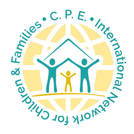|
When going through divorce, many people feel shame and/or guilt because divorce is at some point public and people feel like others are judging them that they’ve failed in their marriage. But shame and guilt are very different and while guilt can be appropriate and understandable, shame never is. There is a major difference between the feelings of shame and the feelings of guilt and there are ways to manage both.
Guilt is a feeling about something either that you’ve done or you *feel* like you’ve done. Brene Brown, a shame researcher, explains that guilt is about behavior where you say to yourself, “I did something bad.” However, Brown explains shame is much deeper and is the feeling like there is something wrong with me. Shame is a focus on one’s self rather than behavior where the person believes, “I am bad.” Because shame and guilt are quite different at their root, it’s important to determine which one you are struggling with in order to understand what to do about them. Coping with Guilt in divorce To manage your guilt in divorce, explore your feelings. What are you feeling guilty about? Talk about your feelings to friends, family, a professional or journal about them. Decide if these feelings of guilt are rational and appropriate or they are irrational and false. Rational: I took my stress out on my kids and spoke harshly to them. False: If I had done XYZ, my husband wouldn’t have left me. If you determine your guilt is rational and related to something real that you DID, then:
But, if your guilt is about something that you had no control over, but you just wish that you could have fixed it by some preventative action, that’s irrational guilt. You aren’t responsible for the actions of your ex, and you’re not responsible for every struggle your children are having because you’re getting a divorce. In these instances, work on your self-talk. Ex: “I am in control of my own responses, not the responses of others.” Coping with Shame in Divorce Shame is painful. Shame is the voice in our head that says that we are a failure, not a good person or similar negative messages directed straight at our identity. To decrease shame, we have to figure out exactly what those messages are. What is that inner voice saying? Shame may come from negative spoken or unspoken expectations and reactions from childhood. What negative messages do you say to yourself? What you think about yourself and how do you talk to yourself and view yourself? Determine where are these negative messages coming from? Was it from a parent, sibling, or some other significant adult in our life? Was it from religion's or a school's explicit or implicit messages? Or was it something else? Identify negative thoughts that get stuck on repeat. Call out those thoughts and replace them with new, positive thoughts. Write all your strengths down. Replace the cycle of negative thoughts with positive affirmations and write them down where you can see them. Surround yourself with supportive people or a therapist who can help you work through these negative core beliefs. It takes work but you can manage your guilt and shame. Like Robert Frost wrote: The only way out is through. |
AuthorJill Barnett Kaufman, MSW, LCSW and Certified Parent Educator is an experienced clinician who helps clients discover new ways to resolve a variety of challenges and bring more happiness and peace into their lives. Archives
November 2023
Categories
All
|
|
If you are in crisis or in need of emergency assistance, please call 911. |
|



 RSS Feed
RSS Feed


